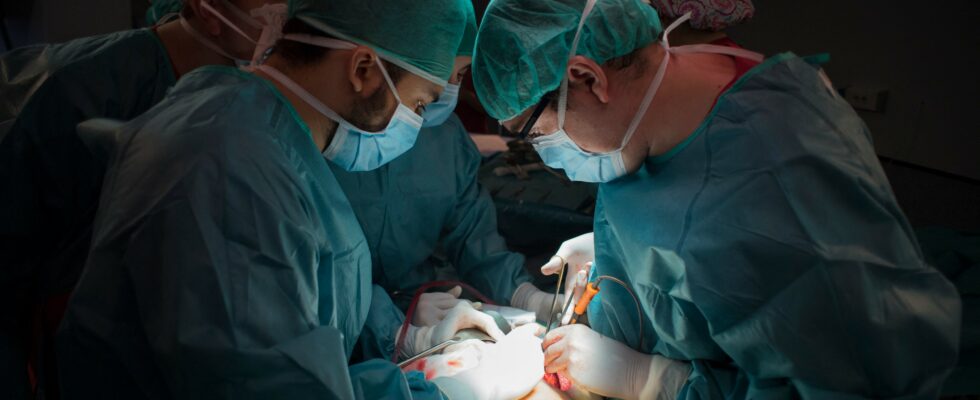The level of organ transplants continues to rise in France but has not yet returned to pre-Covid levels, affected in particular by growing refusals from families and by the persistent hospital crisis, according to the 2023 report of the Biomedicine Agency. In 2023, there were 5,634 transplants, most often kidneys, more than the previous year (+2.5% over one year, or 139 additional transplants) and even more than in 2020 and 2021, years hit by the Covid crisis.
The 2023 results do not catch up with the nearly 6,000 transplants in 2019
“We are very satisfied” with this development, summarized Marine Jeantet, director general of the Biomedicine Agency, at a press conference, stressing that organ donation can “save between three and four people”. But the results for 2023, detailed by this agency managing organ transplants, have still not caught up with the 5,903 transplants in 2019, before Covid.
And that’s not enough in the face of growing needs: more than 21,866 patients remain waiting for a transplant, including 11,422 who can be called immediately. “Transplant activity is increasing in France half as fast as the number of new registrants waiting,” underlined François Kerbaul, director of collection.
The obstacles that stand in the way of the registries
Transplants still face a high refusal rate, more than a third (36.1%) of situations where a transplant could take place and a “significant increase” over one year (+9.4%). All French people are presumed donors, but many have not given their position to their family, and a relative can say if they think the deceased would not have wanted it. As for registrations on the national register of refusals, they “remain minimal – around 0.7% of the population -“, but “we were surprised by a significant increase in those under 35, before it was mainly over 60 years,” noted Marine Jeantet.
Faced with “received ideas”, the agency wants to reassure: “all the organs removed are used for therapeutic interventions, not for scientific research; the grafts are allocated on purely medical criteria, the socio-professional category or origin does not not taken into account”; “no monotheistic religion is opposed to organ donation, and it is possible to perform all funeral rites.”
Another obstacle to transplants: the hospital remains “in pain”, “surgical activity has not returned to pre-Covid levels” due to lack of staff, according to Marine Jeantet. Criticized by the Court of Auditors at the end of January, the Biomedicine Agency highlights its multiple actions (communication, work with hospitals, training of caregivers, etc.) to comply with the 2022-2026 transplant plan.
